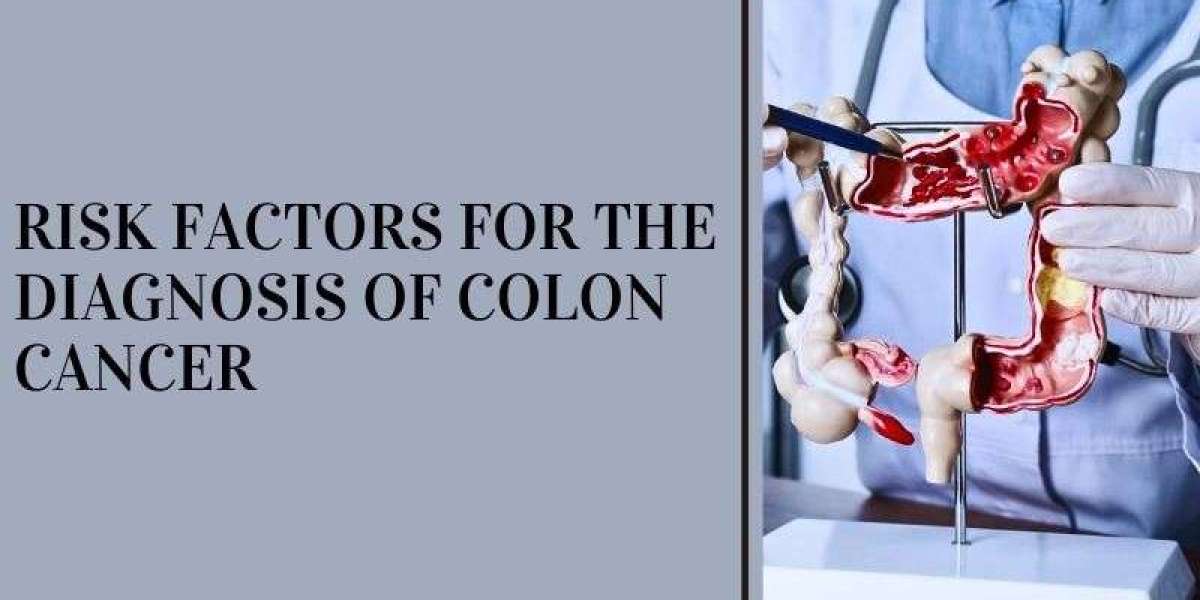Colon cancer, also known as colorectal cancer, is one of the most common types of cancer worldwide. It develops in the colon or rectum and often begins as noncancerous polyps, which can eventually become malignant if left undetected. Understanding colon cancer risks factors is crucial for early detection and prevention, especially for those who may not yet be experiencing symptoms. While some people may seek reassurance by looking up the signs you don't have colon cancer, it is equally—if not more—important to understand what increases your risk of developing it in the first place. This blog explores the most common risk factors and what steps you can take to reduce your chances of being diagnosed with colon cancer.
Understanding Colon Cancer
Colon cancer typically starts as small, benign clumps of cells called adenomatous polyps. Over time, these polyps can turn into cancer. The progression is usually slow, which is why regular screenings like colonoscopies are highly effective in preventing colon cancer through early intervention.
Many cases of colon cancer are asymptomatic in the early stages. That’s why relying solely on physical signs or assuming you're safe because you feel healthy can be misleading. Instead, focus on understanding your risk profile.
Major Colon Cancer Risk Factors
Let’s take a closer look at the colon cancer risk factors that increase the likelihood of developing this disease.
1. Age
Most cases of colon cancer are diagnosed in people over the age of 50. Although rates among younger adults are rising, age remains a significant factor. If you're over 45, it’s generally recommended that you start regular colon cancer screenings.
2. Family History and Genetics
Having a first-degree relative (parent, sibling, or child) who has had colon cancer significantly increases your risk. Certain genetic syndromes, such as Lynch syndrome and familial adenomatous polyposis (FAP), also heighten your susceptibility.
3. Personal History of Polyps and Inflammatory Bowel Disease
If you’ve previously had adenomatous polyps or suffer from chronic inflammatory conditions such as Crohn’s disease or ulcerative colitis, your risk of colon cancer is elevated.
4. Diet and Lifestyle
Diets high in red and processed meats, low in fiber, and high in fat can contribute to colon cancer risk. A sedentary lifestyle, obesity, smoking, and heavy alcohol use are also linked to increased risk.
5. Type 2 Diabetes
People with type 2 diabetes tend to have a higher risk of colon cancer. Insulin resistance may promote the growth of cancer cells in the colon.
Signs You Don’t Have Colon Cancer – What to Know
While it's helpful to be aware of the signs that you don't have colon cancer, it's important to remember that the absence of symptoms does not mean the absence of disease. Some people may feel perfectly healthy and still have early-stage colon cancer.
However, common indicators that may suggest you're at a lower risk (though not completely risk-free) include:
- Regular bowel movements without significant changes
- No blood in stool
- No unexplained weight loss
- No persistent abdominal discomfort or bloating
- Normal energy levels and appetite
These may be considered signs that you don't have colon cancer, but they are not guarantees. Colon cancer can be a “silent” disease, especially in its early stages. That’s why regular screenings are essential, even if you feel fine.
Prevention and Early Detection
Understanding colon cancer risk factors empowers you to take preventative steps. Here are some proactive measures to lower your risk:
- Get screened regularly: Colonoscopy remains the gold standard for detecting precancerous polyps.
- Eat a healthy diet: Emphasize fruits, vegetables, whole grains, and lean proteins.
- Exercise regularly: Aim for at least 150 minutes of moderate aerobic activity per week.
- Limit alcohol and avoid smoking: Both increase your overall cancer risk.
- Maintain a healthy weight: Obesity has been linked to higher rates of colon cancer.
When to See a Doctor
If you experience any of the following, you should consult a healthcare provider promptly:
- Blood in your stool
- A persistent change in bowel habits (diarrhea or constipation)
- Unexplained weight loss
- Fatigue or weakness
- Persistent abdominal cramps or pain
Even if you're experiencing what seem like signs you don't have colon cancer, such as regular bowel movements and no visible symptoms, you should still follow age-appropriate screening guidelines.
Final Thoughts
Colon cancer is largely preventable and treatable if caught early. While it's natural to seek out signs you don't have colon cancer for reassurance, it's far more effective to understand and address the colon cancer risk factors that may apply to you. Taking control of your health starts with awareness. Know your family history, maintain a healthy lifestyle, and don't skip those regular screenings. By being proactive, you can significantly reduce your risk and catch potential issues before they become life-threatening.
For More Details:- (Click Here)


